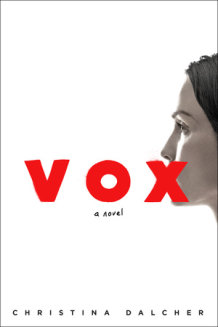

Be Fearless/Photo by Evan Kirby on Unsplash
EDITOR'S NOTE:
Christina Dalcher earned her doctorate in theoretical linguistics from Georgetown University. She specializes in the phonetics of sound change in Italian and British dialects and has taught at several universities. Her short stories and flash fiction appear in more than one hundred journals worldwide. Recognition includes the Bath Flash Award short list, nominations for the Pushcart Prize, and multiple other awards. She lives in Norfolk, Virginia, with her husband.
A quick Google search for ‘writing advice’ tells me there can’t be much left that hasn’t already been said. Nobel Prize winners offer tips. Forty experts tell beginners what to do. Bestselling authors give us insight into their creative processes. And so on, ad infinitum. Then there’s that perfect book, half craft, half writer’s memoir: Stephen King’s On Writing. If I could only have one how-to manual on my shelf, it would be that one.
Where does this leave us, then? What guidance can I, a debut novelist and writer of flash fiction, possibly offer the world, or the emerging writer? I’ve thought about it over and over, and finally came up with two words:
Be fearless.
We know writing takes work, and skill, and talent, and perseverance. There’s the old ‘Butt-in-the-chair, honey!’ mandate (with its cute acronym) — a writer’s corollary to the athlete’s ‘Just Do It’ mantra. You want to run? Run. You want to write? Write. There’s something so plainly tautological about it all. And there can be beauty in tautologies."I think fearlessness is the single quality we as writers need to cultivate, and I mean this in multiple ways."TWEET THIS QUOTE
But I think fearlessness is the single quality we as writers need to cultivate, and I mean this in multiple ways. We need the bravery to pour our emotions out, spilling ink onto paper with a little of our own blood mixed in. That’s no small trick. We need the courage to send our words into the world, knowing that once we do, a part of us is gone, floating in the public sphere, no longer under our control. If one accepts Roland Barthes’ notion that the author is dead, we authors must embrace the concept that we’re killing some portion of ourselves the minute our work leaves us. And, of course, we need the self-esteem and thick, carapace-like skin to hang on and persist when the inevitable rejections hit our inboxes. Believe me, they will hit — hard. A bland form rejection from an agent or editor can carry all the pain of bludgeon to the face, a direct smack to our very soul. Everyone who writes, or who wants to write, requires a ring fighter’s determination, a Rocky-esque willingness to go the distance, and to keep going.
Being fearless also takes us in new directions, allowing us to experiment with previously unknown forms, new characters, and diverse points of view. One of my favorite things about writing flash fiction — tightly condensed stories often under 500 words — is exactly this: Within the space of a day, I can be a cranky old man on a front porch in Mississippi, a young housewife, or a sneaky feline. Fearlessness is a gift, a license to try something different and liberate ourselves from any habitual ruts. And it need not be limited to our writing lives. We can extend it to our whole lives: to our relationships with ourselves and others, to our careers (and the changing thereof), and to how we interact with the world.
Finally, we need to forge some armor of another sort — the kind that protects us from dissatisfied readers. It’s useful to remember that old John Lydgate saying about not being able to please everyone all of the time. Every once in a while, our words may not even reach the point of unpleasing, instead inspiring far less positive reactions. Still, they’re our words and our thoughts, and we have to steel ourselves against ugly feedback. (Hint: read your reviews, or not. Then go back to doing what you do.)
When I teach writing classes, the very first thing I tell my students is to prepare for rejection and failure. Both are going to happen, sometimes much more frequently than we’d wish. The rejection and failure aren’t the focus, though; it’s what we do afterwards that counts. And what we, as creators, should do afterwards is simple: get up and do it all over again.
Would I call myself fearless? Would I use that label? I don’t know; I haven’t walked through the world with a superhero cape on my back. I do know that others have said this about me, starting with my first professor in graduate school twenty years ago. That man is gone now, and I can’t pick up the phone and say, “Hey, guess what? I believe you.” So instead, I write, a little or a lot every day, and try to live up to the descriptor. I try to fear nothing, even when that seems impossible.
Maybe you were expecting a writer’s user manual. A list of do’s and don’ts full of perennial tips like ‘show, don’t tell’ and ‘avoid adverbs.’ Something along those lines. But the best advice I can give, and — in my mind — the only advice worth its salt, is encapsulated in two words.
Be fearless.
Then sit back and watch what happens. I have a feeling what happens will be good.

No comments:
Post a Comment